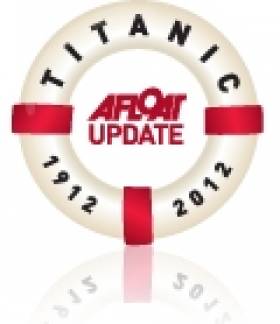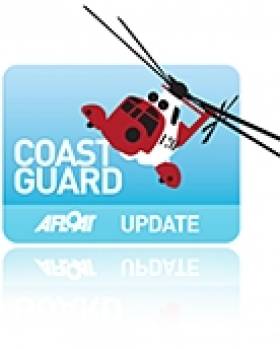Displaying items by tag: Peter Robinson
#TITANIC - A Belfast man who saw the Titanic launch from the Harland and Wolff shipyards more than 100 years ago was guest of honour at the opening of Titanic Belfast at the weekend.
"It's like our Sydney Opera House," 105-year-old Cyril Quigley told BBC News of the £97 million (€116.7 million) visitor centre, opened on the 100th anniversary of the infamous ocean liner's tragic demise.
"My father and mother took me to Workman and Clark shipyard which is on the opposite side [of Belfast Lough] to watch the launch," he recalled to the Belfast Telegraph.
"I just saw a mass of metal in the gantries that they built for it and all I saw was this big thing sliding out into the water. I was only four-and-a-half."
Quigley described the new facility - designed to echo the imposing bow of the Titanic - as "wonderful", a sentiment echoed by Belfast Lord Mayor Niall O'Donnghaile who said: "The Titanic belongs to Belfast but this spectacle - Titanic Belfast - belongs to the world."
First Minister Peter Robinson was joined by Deputy First Minister Martin McGuinness at the ribbon cutting ceremony on Saturday 31 March, with the former declaring that this is "a new era in this province".
Titanic Belfast is expected to attract more than 400,000 visitors in its first year, and some 100,000 people have already purchased tickets. It will also be one of the largest employers and recruiters in Northern Ireland's tourism industry, as previously reported on Afloat.ie.
But the public's reaction so far has been mixed, according to The Irish Times, with some expressing disappointment at the lack of any large-scale model of the ship, and that the replica of the ship's famous staircase is hidden from public view in the venue's banqueting hall.
NI First Minister Highlights Need for Local Knowledge Over Clyde Coastguard Closure Threat
#COASTGUARD - Northern Ireland's First Minister has highlighted the need for local knowledge in light of the threatened closure of the Clyde coastguard station in Scotland.
As previously reported by Afloat.ie, the control centre at Greenock is set to be scrapped under the UK government's plans to streamline Britain's coastguard network.
Some 31 jobs will be lost in the closure, while rescues on the River Clyde and western Scotland will in future be handled from Northern Ireland's Bangor station on Belfast Lough - which itself was saved from the chop following a review over the summer.
In a letter to MSP for West of Scotland, Stuart McMillan, First Minister Peter Robinson said that his and his government's concerns "centre on the safety of the people using our coasts and seaways, which could be jeopardised by the loss of local knowledge and experience."
McMillan welcomed his support, adding that "despite the consultation period being over, it is not too late for the UK Government listen to the growing number of voices saying that this must be reversed.
“Closing coastguard stations down including Clyde is a short-sighted and dangerous move which puts saving money over saving lives.”






























































